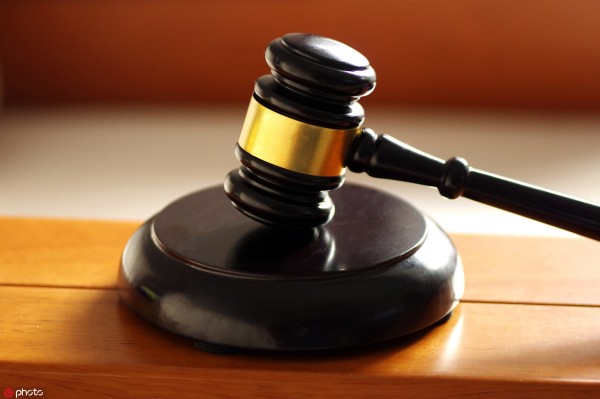Judges told to police themselves

[Photo/IC]
The Supreme People's Court (SPC) has reminded Chinese judges that they must police themselves to prevent any person or organization from interfering with their case handling.
The SPC reiterated the requirement on Friday by disclosing five influential cases in which judicial staff members were punished for their improper handling of lawsuits.
In one case, a former deputy chief judge surnamed Sun, who served in the enforcement division of an intermediate court in Liaoning province, was found to have abused his power from 1993 to 2018 to benefit a number of companies engaged in industries such as animal production, real estate and gold mining, as well as two lawyers. In return, he accepted about 2 million yuan ($277,860).
Sun was convicted of bribery in August 2021. He was sentenced to four years in prison and ordered to pay a 300,000 yuan fine.
The SPC said Sun accepted money from litigants and lawyers, which is explicitly prohibited, and such behavior had impeded the fair handling of cases and damaged judicial credibility.
In another case, a former judicial official surnamed Zhou, who served at a grassroots-level court in Hebei province, received a five-year prison sentence and was fined 200,000 yuan after he was found guilty of accepting bribes, abusing his power and embezzlement in January 2022.
According to the investigation, Zhou was found to have accepted gifts worth 6,700 yuan from litigants while handling two civil disputes in 2018, as well as cash, accommodations and entertainment activities worth 20,000 yuan arranged by litigants in another private loan case from May to August 2020.
He also interfered with a company's litigation efforts while serving as the grassroots court's vice-president from October 2019 to August 2021.
In addition, Zhou was found to have aided litigants in the filing and handling of their cases, accepting 930,000 yuan in return.
"Zhou's behavior seriously violated our regulations on prohibiting judicial intervention," the SPC said. "Zhou deserved the punishment, as he knowingly broke the law and sought personal gains through case handling."
Liao Xiangyang, head of the SPC's Discipline and Supervision Department, who revealed the punishments the former judges received on Friday, said that eliminating interference in case handling and correcting the misbehavior of judicial personnel were also among the requirements highlighted in 2015.
"To meet the requirements, we've established an online platform covering all judicial staff members nationwide, urging them to record inquiries from individuals or organizations regarding the handling of cases," he said.
"Every inquiry must be documented, even if it's just litigants seeking updates on the progress of cases or requests for judges to expedite judicial proceedings from other individuals such as national lawmakers and political advisers."
He said recording inquiries was a method of self-discipline that every judicial staff member must undertake, adding "those who do not document such inquiries will be held accountable."
Gao Bo, an official from the country's top anti-corruption watchdogs, welcomed the inquiry recording platform designed by the SPC, saying that stronger supervision should be implemented in the judicial system to help create a sound rule of law environment.
He also suggested the SPC improve the classification and sorting of information on the platform, adding "suspect content or clues need to handed over to disciplinary and supervisory departments for further review."







